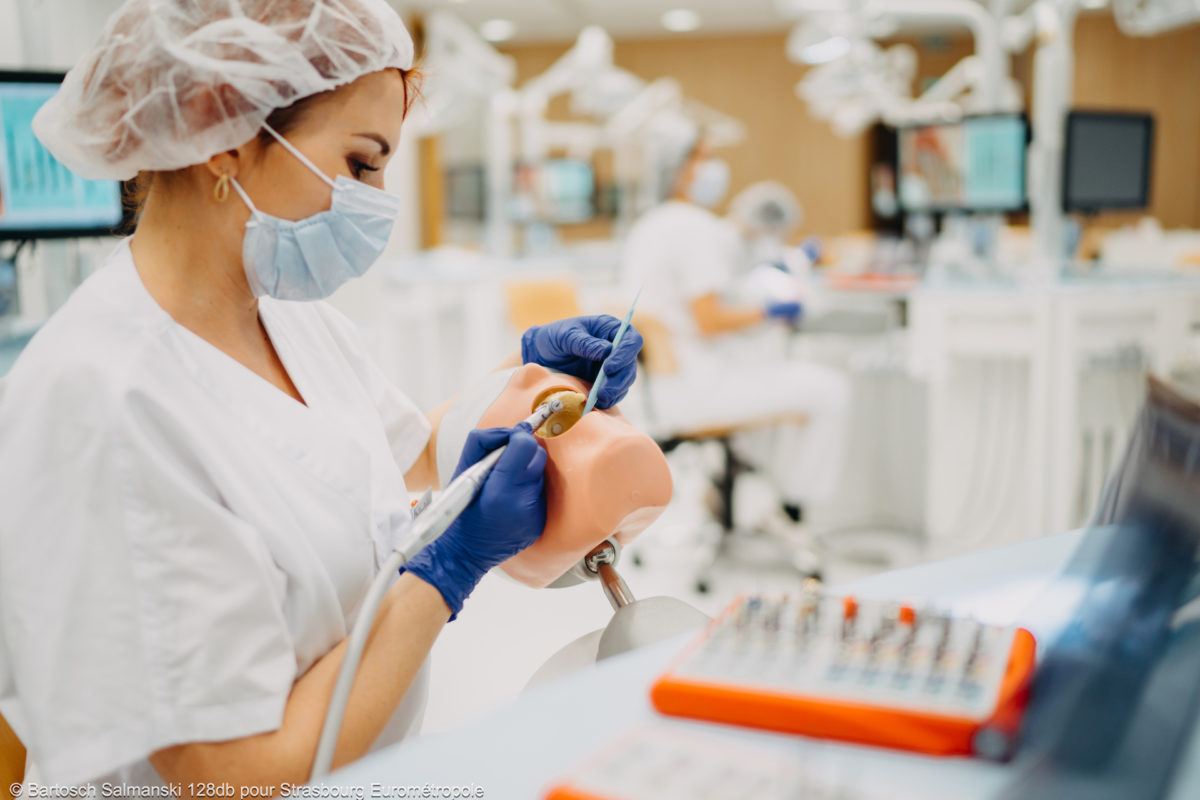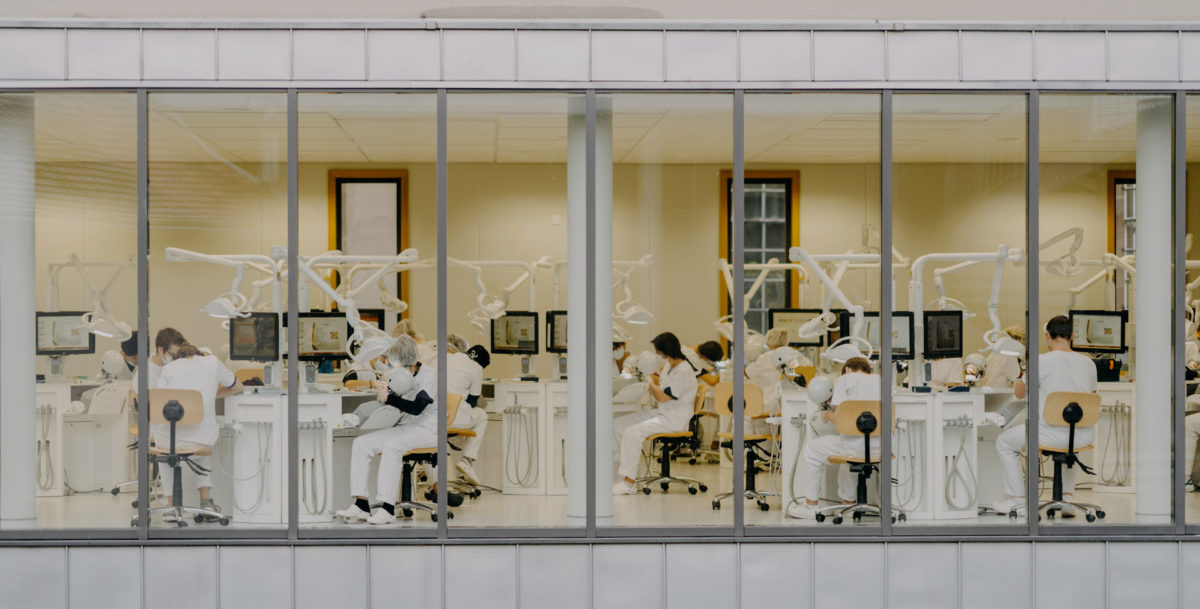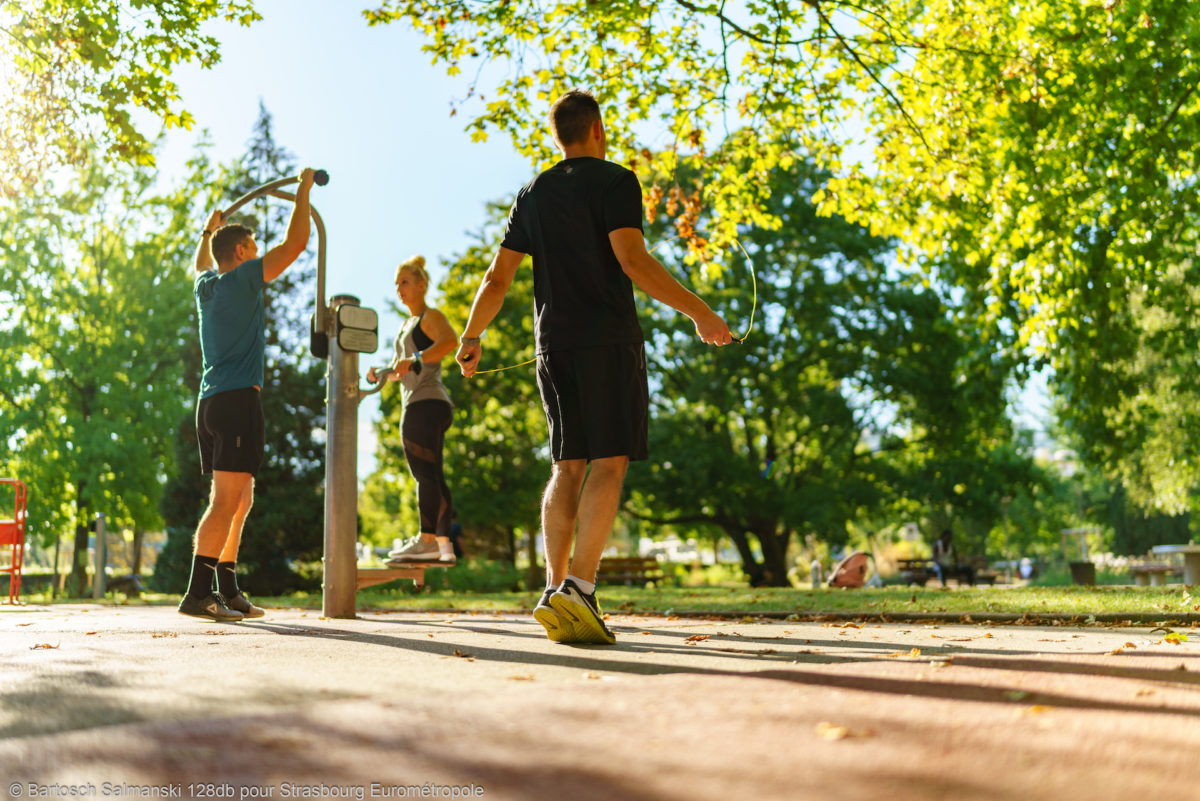There are 3 reasons for us talking about innovative healthcare – or the healthcare of the future – in Strasbourg.
First of all, the city is located right in the centre of Europe, in the middle of the golden triangle formed with Germany and Switzerland (the 3 countries together boast the highest concentration of MedTech and some 40% of worldwide research). The territory can also lay claim to being a benchmark for the exchange of expertise, with its world-renowned University, 5 active Nobel prize winners, 5200 researchers, the 4th-ranked hospital in France (the University Hospitals of Strasbourg), the 4th-ranked clinic in France (Rhéna), 300 healthcare companies within a 200 km radius, 11 laboratories of excellence and several healthcare-related business centres and cutting-edge institutes, including IRCAD, IGBMC, ICube and IHU. Strasbourg also has a formidable reputation for the outstanding training offered by, for example, IRCAD, the worldwide leader in minimally invasive surgery, which organises training for over 6200 surgeons from all parts of the world every year.
A concentration of both talents and people passionate about innovating offers an outstanding launching pad for future initiatives, that allows us Europtimists to claim the title of the leading healthcare metropolis in France and in Europe.

Nextmed, the city-centre campus that leads Europe in medical technologies
The Nextmed campus covers a city-centre area of 33 ha and 30,000 m² and offers a fertile terrain for valuable exchanges and transfer of technologies between its private- and public-sector stakeholders. The digital healthcare of the future is being mapped out here, with ongoing, everyday cooperation between doctors, healthcare professionals, major companies, young academics, start-ups, engineers and patients. The campus is host to IRCAD, the ICube laboratory, the faculty of medicine, the new Civil Hospital and 3 business centres (Technoparc, pH8 and the Haras biocluster). 1000 new jobs have been created on the campus since 2012, a figure that is expected to double by 2025. Some 50 companies have experienced sharp growth and have raised significant funds, in the wake of major groups such as Karl Storz, Siemens and GE Healthcare moving into the campus. The Hacking Health Camp is an annual international event for innovation in healthcare, bringing some 800 participants onto the campus and allowing project leaders to rub shoulders with healthcare professionals, patients, engineers and designers to bring projects to fruition. 178 functional prototypes have been developed since 2014 and 19 winning projects have seen the light of day!
An ecosystem for driving healthcare in Strasbourg
Strasbourg is indisputably where clinical research and industry work side-by-side to come up with the therapeutic solutions for the future, but it doesn’t end there. A wide range of support processes, such as the BioValley France competitiveness cluster, the Connectus Alsace technology transfer acceleration company and the Semia business incubator have the full backing of the Eurometropolis and its partners, who put their focus on the patient and improving patient care.
As a result of these efforts, Strasbourg has been awarded the French government-backed “Healthcare territory for tomorrow” label, which sets out to speed up the dissemination of innovations. The core idea of the process is to leverage the full potential of digital (such as real-time data access, and the development of e-medicine) to forge closer collaboration between urban and rural zones. The whole of the healthcare process, from prevention to the patient’s return home is taken into consideration to help the population access healthcare as needed and guarantee the finest quality of care.
A few examples... just to prove our point

Many new companies and start-ups in e-health have seen the light of day in Strasbourg and have designed and/or are marketing innovative devices.
- Defymed: bioartificial pancreases as an alternative to insulin pumps for diabetic patients.
- Dianosic: intelligent balloons for treating intranasal conditions.
- SC Medica: developing medical devices for use on the spine for treating herniated discs.
- Fizimed: marketing a device for pelvic floor therapy following childbirth.
- Visible Patient: 3D modelling of medical images for surgeons to create a virtual clone of patients for preparing and repeating an operation.
What about everyday healthy living?
A healthy mind in a healthy body means (trying to) exercise on a regular basis, such as the fitness trail, jogging or exercise in the park, municipal swimming pools, skate parks – if you want to get or keep fit, there’s plenty of scope in Strasbourg. The city’s sports department brings together some 200 sports associations representing 126 sports, including aquagym, football, dance, baby swimming, fitness, skating, yoga, boxing and basketball.
So let’s get going, there’s no point hanging around!

Healthcare in Strasbourg in figures
students in Strasbourg (1800 in medicine, 1400 in paramedical)
surgeons trained every year at IRCAD
Top-ranked French university for scientific papers
million funding raised for healthcare start-ups in 2018
billion euros invested in the Nextmed campus
award-winning healthcare projects in France with €450 million of subsidies and investments to be divided between the projects “
